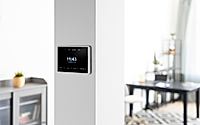Breathe Easy This Fall: How Smart HVAC Maintenance Improves Indoor Air Quality
As the crisp autumn air settles in, many homeowners turn on their heating systems for the first time since spring. While this transition brings comfort, it also poses a crucial opportunity to enhance your home’s indoor air quality (IAQ).
Proper HVAC maintenance ensures efficient operation and helps create a healthier environment by reducing allergens, pollutants, and other harmful substances. Here are some essential tips to keep your home’s air fresh and clean as the heating season kicks in.
Understanding Indoor Air Quality and Its Importance
Indoor air quality refers to the condition of the air inside a building and its effect on the health and comfort of its occupants. Poor IAQ can lead to various health problems, including allergies, respiratory issues, and chronic diseases.
As we close windows and spend more time indoors during the fall and winter, the concentration of indoor pollutants can rise significantly. These pollutants may include dust mites, pet dander, mold spores, and household products’ volatile organic compounds (VOCs). By focusing on HVAC maintenance and improving IAQ, you can create a healthier living space for your family.
The Role of HVAC Systems in Indoor Air Quality
Your HVAC system maintains indoor air quality by regulating temperature and humidity and filtering airborne particles. A well-functioning system circulates fresh air throughout your home while removing contaminants.
However, if your system is not maintained correctly, it can become a source of pollution itself. Dust and debris can accumulate in ducts, filters, and components, reducing air quality. Regular maintenance helps ensure that your HVAC system operates efficiently, improving airflow and reducing the presence of harmful particles.
Seasonal HVAC Maintenance Checks
As the heating season begins, conducting a thorough maintenance check on your HVAC system is essential. This includes cleaning or replacing air filters, which should be done every 1-3 months, depending on usage and the type of filter. Clogged filters restrict airflow and trap pollutants, diminishing your indoor air quality.
In addition, scheduling a comprehensive inspection with a reputable HVAC technician from the Apple Plumbing Heating & Air team can help identify and address potential issues. A professional technician can clean ductwork, inspect the heating unit, and ensure that all components function optimally, enhancing overall air quality.
Humidity Control
Maintaining proper humidity levels in your home is critical for promoting good indoor air quality. High humidity can encourage mold growth, while low humidity can lead to dry skin and respiratory issues. Ideally, indoor humidity should be kept between 30% and 50%.
Using a humidifier during dry fall months can help add moisture to the air, while a dehumidifier may be necessary in damp conditions. Your HVAC system may also include built-in humidification or dehumidification controls, so consulting with your HVAC technician can help you find the best solutions for your home.
Enhance Ventilation
Good ventilation is key to improving indoor air quality. It helps bring fresh outdoor air inside while expelling stale air and pollutants. When windows are often closed in the fall, consider using your HVAC system to improve ventilation.
Many modern HVAC systems come equipped with ventilation options, such as energy recovery ventilators (ERVs) or heat recovery ventilators (HRVs), which allow for better air exchange without losing energy. Ensuring your system’s ventilation is functioning correctly will significantly enhance the air quality in your home.
Air Quality Monitoring
Investing in an indoor air quality monitor can be beneficial in understanding the air conditions in your home. These devices can measure levels of common pollutants, humidity, and temperature.
Monitoring IAQ will allow you to take proactive measures if levels exceed recommended thresholds. If your monitor indicates poor air quality, consider running air purifiers or adjusting your HVAC system settings to improve the situation.
Use of Air Purifiers
Air purifiers can be a valuable addition to your indoor air quality strategy. They help remove airborne pollutants, allergens, and other contaminants that may evade your HVAC system’s filters. When selecting an air purifier, look for models equipped with HEPA filters designed to capture small particles effectively. Positioning air purifiers in key areas of your home, especially bedrooms and living spaces, can significantly enhance indoor air quality.
- by Matt Watts






